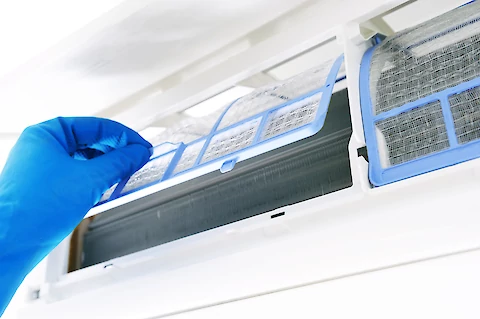
How to Keep Indoor Air Quality Consistent During Winters in Salem
The holidays are typically when most cities around the country experience winter. Because of this climate, most people are forced to stay indoors. Seniors are forced to remain indoors because they are vulnerable to infectious diseases. Dust mites, pet hair, viruses, mold spores, and gaseous contaminants like cigarette smoke and paint off-gassing, cleaning products, and building materials are just a few of the many potential sources of pollutants.
However, seniors in different cities experiencing winter have nothing to worry about because there are ways to keep indoor air quality consistent and improve their overall health.
Here are some recommendations for improving air quality air in winter-stricken cities:
4 Ways to Keep Indoor Air Quality Consistent
1. Use Fresh Air Ventilation
Air can be cleared by opening doors and windows, although it is not recommended to leave them open in freezing weather. They can, however, use spot ventilation at some typical sources of pollution. Ensure the kitchen and washroom dryer vent and exhaust fans are operating well. These blowers eliminate any moisture that can cause mold to grow. Some building supplies, including paints, adhesives, and solvents, can emit hazardous vapors. Let the fumes go if they are doing a pastime or a home improvement project.
2. Replace the Furnace and Air Conditioner's Filters
The machinery in forced-air systems for heating and cooling is protected from home dust by filters. The filters should be changed at least at the start of winter if the system includes a central air conditioner. Small particles, including germs, allergies, and mold spores, cannot be removed by standard filters. They will require a high-efficiency filter to remove those kinds of pollutants from the system. Any filter's rating reflects how effective it is.
3. Use Non-Polluting Products
Reducing the use of products that can lead to pollution is one strategy to reduce interior air pollution and keep indoor air quality. Building materials, including carpets and other flooring, paints, adhesives, cleaning products, solvents, and cleaning supplies, are a few examples of things we bring into our houses that may create vapors that are hazardous to some people. Buying low-emission products is the aim. When left at room temperature, they are chemical substances that swiftly evaporate and emit aromas. Winter usage of the majority of VOCs is safe and permitted indoors.
4. Test and Observe
Senior citizens' homes should have radon testing and be equipped with carbon monoxide sensors. An unnoticeable, colorless gas called radon is produced when uranium decays spontaneously in some soils. It can cause severe sickness if it gets inside the house.
The test can be performed independently, and diagnostic kits are reasonably priced. They should frequently collect an air sample from their house and submit the canister to a laboratory for analysis to keep indoor air quality. There are several methods for preventing radon from entering their home if they have a problem.
Final Thoughts
Seniors should make sure they are aware of the ways they can use to maintain their indoor air quality despite the winter. Senior Helpers are available if the seniors need a caregiver in the Salem, Dallas, Keizer, Albany, and Corvallis areas. We cherish our client's well-being, so for any assistance, contact us at Senior Helpers Salem today!